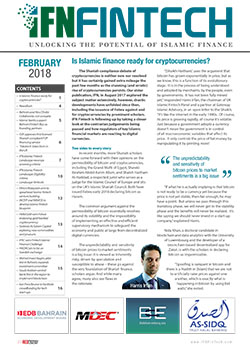Bond Market Watch: Malaysia - Undeterred by Kitchen-Sinking Exercise
Malaysia: Undeterred by Kitchen-Sinking Exercise
Mildly Bullish. Local sentiment was weighed down by a confluence of policy transition under the new administration and headline news that Malaysia’s government debt has exceeded MYR1t, but sentiment should improve with policy clarity and budget reset. Fiscal and bond supply risk is unlikely to be significant, although more details is needed for MYR201.4b lease payment obligations under PPP, for now we assume these have been budgeted for under operating expenditure. Reiterate our buy call on 15y MGS 11/33, Enter: 4.60%, Target: 4.35%, Stop: 4.85%.
China: Short-term Rates Rise on Prefunding Activity
Neutral. The official tone of the PBOC’s monetary policy stance will likely stay neutral and prudent, but additional targeted easing via RRR cuts should not be ruled out in 2H2018. On one hand for stability consideration, liquidity will likely be kept ample to avoid unnecessary stress in the market, but on the other hand for prudent consideration, reverse repo and SLF rates may continue to be increased marginally by 5-10bps potentially in 2H2018. We think the balance of risks is fairly neutral for now and CGB yields should stay in range.
Indonesia: BI Strives to Get “Ahead of the Curve”
Neutral. Raising interest rate by another 25bp, totaling 50bps in May, at the unscheduled meeting manage to stabilize the Rupiah and alleviate outflow pressure. IndoGB market may consolidate in the near term, perhaps moving sideways in a less volatile range. Indonesian market will be closed for about 10 days from 10th to 20th June for Eid Al Fitr festival, therefore secondary trade volume will likely thin out and bid-ask probably widen nearing mid-June.
Singapore: Neutral on Stable Funding Rates and Geopolitical Risks
Neutral. SGS should continue to track the UST performance, a strong correlation that has expectedly been revived since early Jan 2018. Looking ahead, the widely anticipated 25bps FFR hike by the US Fed in June, which is ~90% priced in by market, should give little upward pressure on yields unless the Fed’s forward guidance on rates become ostensibly hawkish, but this may be unlikely given the recent headline risks on geopolitical tensions such as the uncertainty surrounding the politics in Italy. We retain a neutral view on SGS.
Thailand: Raised to Neutral after the Recent Correction
Raised to Neutral. Following a 15-30bps correction in ThaiGB yields in May, we think risk-reward has turned more balanced. The negative yield differential between 10y ThaiGB and 10y UST yields is close to the narrower end YTD. Diverging monetary policy path between the US Fed and BoT may stay in the near term. Thai Baht should stay resilient on a still stable political landscape and the country continues to benefit from large current account surplus.
Click link below for report:
Bond Market Watch: Malaysia - Undeterred by Kitchen-Sinking Exercise
Regards,
Winson Phoon, ACA
(65) 6231 5831
winsonphoon@maybank-ke.com.sg
Se Tho Mun Yi
(603) 2074 7606
munyi.st@maybank-ib.com
Anup Kumar
(62) 21 2922 8888 Ext 29692
akumar@maybank.co.id
This message is intended only for the use of the person to whom it is expressly addressed and may contain information that is confidential and legally privileged. If you are not the intended recipient, you are hereby notified that any use, reliance on, reference to, review, disclosure or copying of the message and the information it contains for any purpose is prohibited. If you have received this message in error, please notify the sender by return e-mail immediately and delete all its contents.
Opinions, conclusions and other information in this message that do not relate to the official business of Maybank Kim Eng Securities Pte Ltd (incorporated in Singapore) and/or its related companies (collectively, "Maybank Group") shall be understood as neither given nor endorsed by Maybank Group.


















